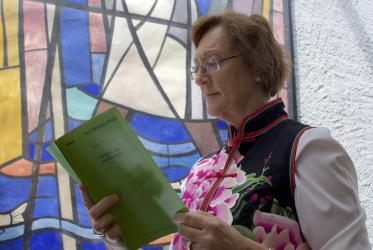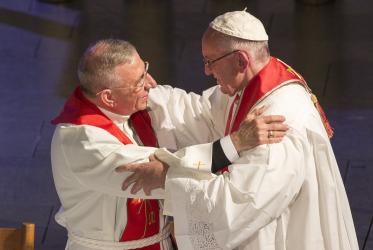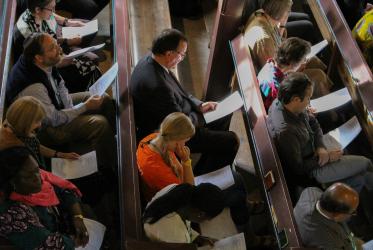Displaying 121 - 140 of 190
"We have our work cut out for us"
10 August 2017
Missional formation for new contexts
15 June 2017
Opening of the Exhibit on the Human Rights Situation in the Philippines
05 May 2017
Ecumenical Centre, Geneva
Plans for 2017 decided by WCC Executive Committee
01 December 2016
Taking the measure of the ecumenical movement today
30 November 2016
Religion: Way of war or path to peace?
30 June 2016














